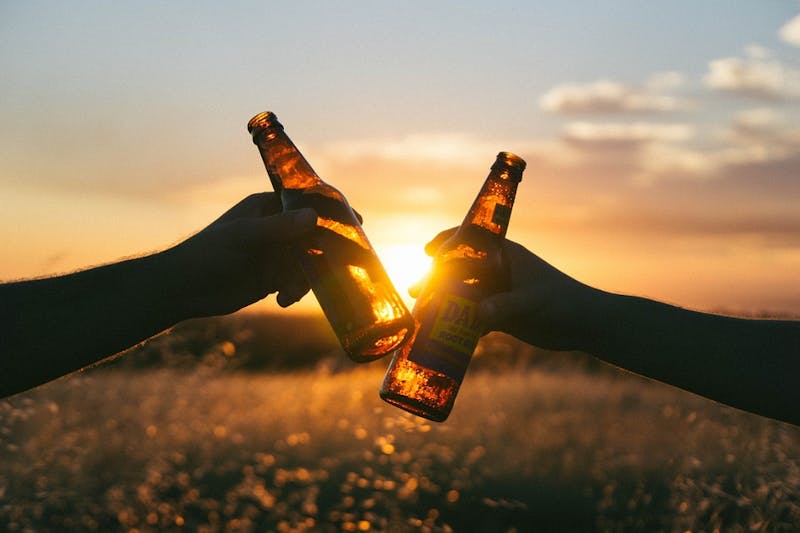
One of the questions that we’re asked often is: how bad is alcohol really for weight loss? Can I still drink alcohol when I’m trying to lose weight?
With Memorial Day and more outdoor events and cookouts approaching, we figured now would be a good time to answer this question for you. For those of you who are just looking for the short version, the answer is yes, you can still drink when you’re trying to lose weight, but the key is to be selective with what you’re drinking and how much you’re consuming.
The Statistics on Booze
Fox News Magazine estimates that 36 percent of men and 21 percent of women consume alcohol each day. It’s also estimated that approximately 45 million Americans are trying to lose weight. With these numbers, it’s a pretty good guess that many of these people who drink daily are also trying to lose weight.
When starting a weight loss plan, you’ll often find alcohol on the “no” list. Because alcohol is full of empty calories – meaning it contains calories with no real nutrition – it’s best to avoid it completely, but if you’re able to consume it in moderation, you’ll still be successful with your weight loss goals.
Counting the Calories
Alcohol itself contains 7 calories per gram — almost double the 4 calories per gram from protein and carbohydrates and 2 calories short of the 9 from fat. Unlike the other calorie-containing nutrients though, alcohol doesn’t offer you anything else, like vitamins or minerals and it doesn’t provide a feeling of satiety, meaning that no matter how much you drink, you won’t feel full.
In addition to the calories in the alcohol itself, many cocktails contain mixers like soda or sugary syrups that pack a wallop in both calories and sugar. It’s easy to take in 200 to 300 calories in one mixed drink. While a 4-ounce glass of red wine contains 95 calories, a margarita packs a whopping 550 calories. One of those a day in addition to your regular meals and you could put on a pound per week.
Lowered Inhibitions
It isn’t just the calories alone that make alcohol a questionable choice on a weight loss plan; it’s alcohol’s tendency to lower inhibitions. After you’ve had a few drinks, you’re more like to choose foods that you’re trying to stay away from. Pizza at midnight may not be a good choice, but when alcohol clouds your judgement, you may be less likely to realize that.
Metabolism Mix-Up
The metabolism of alcohol also disrupts the way your body burns fat. As you can imagine, a properly working metabolism, especially when it comes to fat-burning, is vital to your weight loss success.
Normally, the liver metabolizes the calories from fat and allows you to use them for energy. When you drink alcohol, your liver prioritizes its breakdown over the metabolism of fat. As a result, your body uses the calories from the alcohol as energy and stores the fat, which can prevent weight loss – and even cause weight gain.
Drinking Smartly
We’re not here to blow your buzz (pun intended) and tell you that alcohol is completely off limits, but if you do decide to indulge here and there, make sure you’re making smart choices. Don’t drink more than the recommended amounts – no more one drink per day for women and two drinks per day for men. Remember, a drink is 5 ounces of wine, 12 ounces of beer or 1.5 ounces of liquor, not whatever amount you can fit in one cup.
Choose wine, light beer or a low-calorie mixer, such as club soda, over juice or cola. Avoid fancy cocktails like margaritas, mojitos, and Long Island Iced Teas, which typically have lots of added sugar. Always eat a satisfying meal before indulging in some cocktails. Some people are tempted to skip dinner to save on calories, but this can backfire. You’ll feel the effects of the alcohol more quickly and be more likely to binge on unhealthy foods later.

